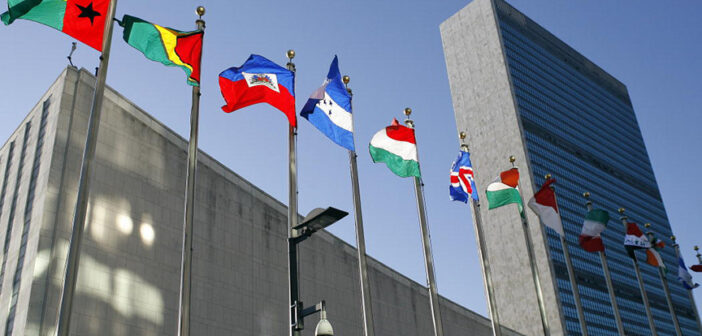Lehigh University students had the opportunity to engage in private discussions via Zoom on Oct. 15 with Palestinian Deputy Ambassador to the U.N Feda Albdehedy-Nasser and Israeli Deputy Ambassador to the U.N. Noa Furman.
The discussions were held separately, one after the other. Each ambassador addressed both states’ desire to reach peace, especially within the Gaza Strip region.
The conflict between Israel and Palestine is one that goes back many decades, specifically to the Arab-Israeli War of 1948 and the Six-Day War in 1967.
Albdehedy-Nasser began with a brief lecture on her perspective of the conflict. She spoke about the illegality of Israel’s occupation and colonization of land in Palestine, particularly in the West Bank.
“Although the occupation has been normalized, it is illegal in every dimension. Daily life in Palestine is marked by Israeli raids,” Albdehedy-Nasser said.
Over 53 schools in the West Bank are threatened by Israeli demolition orders, 90 percent of the water in Gaza has been deemed unsafe for consumption and thousands of Palestinians have been killed in Israeli military raids throughout the last five years, Albdehedy-Nasser said.
Albdehedy-Nasser described Israel’s occupation of regions in Palestine as a criminalization of Palestinian existence on their land, aparteid, a war crime and a crime against humanity.
Albdehedy-Nasser believes the solution to the conflict is not humanitarian, but rather legal. She said what she wants for Palestine is no more and no less than what it is supposed to have under international law. She wants peace.
Albdehedy-Nasser said she goes to work every day optimistic that she will see peace achieved in her lifetime.
“In the land of miracles, anything is possible,” she said.
Furman said the main problem is not the occupation of the West Bank and Gaza Strip region.
“Maybe you know because there are Jews living in the Gaza Strip,” Furman said. “When we decided to evacuate them, they all left, we can do the same in the West Bank, that’s not the problem. The problem is that the Palestinians have what they call, or what they claim for what they call, the right of return.”
The Palestinian right of return is the belief that Palestinians have the right to the land left behind by them or their ancestors in the regions that were formerly a part of the British Mandate of Palestine. Those regions are now parts of Israeli and Palestinian territories, Furman said.
Furman said she agrees with the idea that Palestine should have a recognized state where Palestinians around the world can come and live. She compared it to how Israel welcomes Jews around the world to come and live or visit their ancestral homeland.
“If Palestinians came and said we want to have a Palestinian state, so that every Palestinian everywhere on the world if they want, they can come and live in Palestine, I would say, that’s fair enough,” Furman said. “That’s what we did with the Jews around the world. But the Palestinian didn’t say that, the Palestinian said, ‘We want a Palestinian state. But we want all the Palestinians to have the right if they choose to move and live in Israel.’ That will be the end of Israel.”
Israel is approximately 74 percent Jewish and 20 percent Arab. Palestine is over 90 percent Muslim with the remaining percentage being largely Christian or Samaritan.
Furman stressed the importance of protecting Israel as the only Jewish nation in the world and addressed the challenges of being a Jewish nation surrounded largely by Islamic states.
Albdehedy-Nasser said she wishes the U.S. would recognize that Palestine is home to the oldest Christian tradition in the world and just because the U.S. shares Judeo-Christian values with Israel, does not mean the U.S. should support Israel if it is breaking international law.
Political Science major Juliana Caskie, ‘23, said her biggest takeaway from the discussion was how important it is to see two different sides of an issue.
“Even though I don’t agree with one ambassador’s stance, I did gain some really valuable insight into why they are taking the position they are regarding the Israeli-Palestine conflict,” she said.






Comment policy
Comments posted to The Brown and White website are reviewed by a moderator before being approved. Incendiary speech or harassing language, including comments targeted at individuals, may be deemed unacceptable and not published. Spam and other soliciting will also be declined.
The Brown and White also reserves the right to not publish entirely anonymous comments.